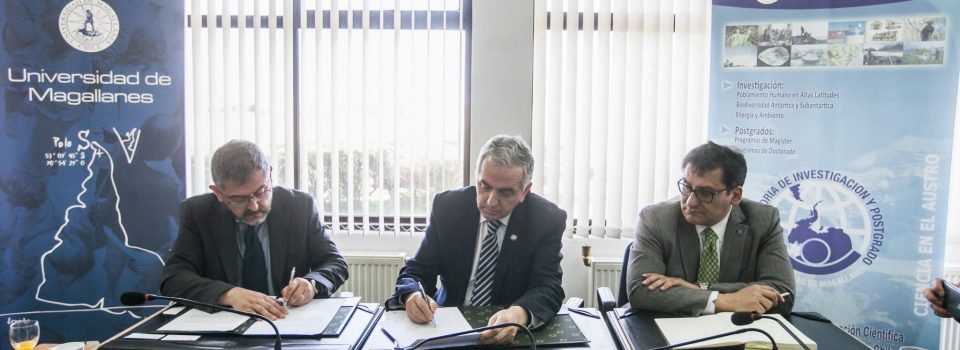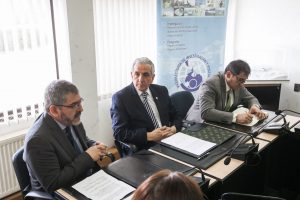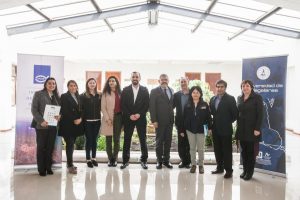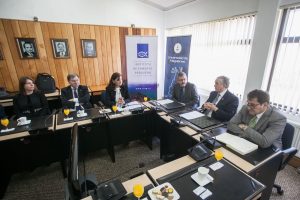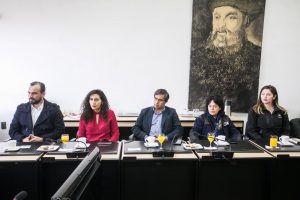UMAG and IFOP start joint work on regional coastal ecosystems study
October 10th, 2017The signed agreement includes collaborative research and training actions whose central axis is knowledge generation around the Western Patagonia and Tierra del Fuego coasts.
Universidad de Magallanes (UMAG) has just established a new institutional alliance after signing an agreement this week with (IFOP) Institute of Fisheries Promotion in the field of scientific and technical cooperation. The objective? To promote a collaborative work on knowledge generation related issues of the region’s coastal ecosystems and their management.
The agreement signing was led by IFOP’s executive director, Leonardo Nuñez and UMAG’s Dean, Juan Oyarzo, in a ceremony that was attended by IFOP regional management team and the institutional university management team. On that occasion, both representatives celebrated the initiative and pledged to strengthen the link through Instituto de la Patagonia work on research area and in the academic field, the Sciences Faculty.
In this way, and according to the document, “the parties will generate joint programs to promote knowledge generation on the Western Patagonia and Tierra del Fuego coastal ecosystems, as well as on coastal management, including aspects of the natural sciences and ecological in general, destined scientific publications development that become referents for regional marine resources development and sustainable use “.
It also contemplates exchanges and internships development, as well as professional practices of students assigned to the programs of one and other institution, that allow to increase knowledge of the future professionals in the subjects and topics that have to do with coastal order and fisheries .
In this regard, IFOP’S head stated that formalizing this cooperation with UMAG “is a tremendous opportunity for this institute that has a public vocation, and that needs to increase networks of knowledge groups that are located in different regions, in order to build a strong network that will allow us to intensify our knowledge about fishing and aquaculture productive country. matrix ” For this reason, he highlighted advances in the study of crab, a work that they have been working with jointly with Instituto de la Patagonia “to understand in an ecosystemic way the community development of this species and, obviously, the effect of fishing on that system “He added.
Following the same line, the director of Instituto de la Patagonia, Dr. Flavia Morello, stressed the importance of this agreement, ensuring that it is a very favorable context “to generate synergies in various areas such as research, linkage with the environment and teaching undergraduate and postgraduate courses.
Source: Universidad de Magallanes
http://www.umag.cl/vcm/?p=25629
